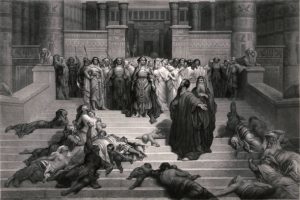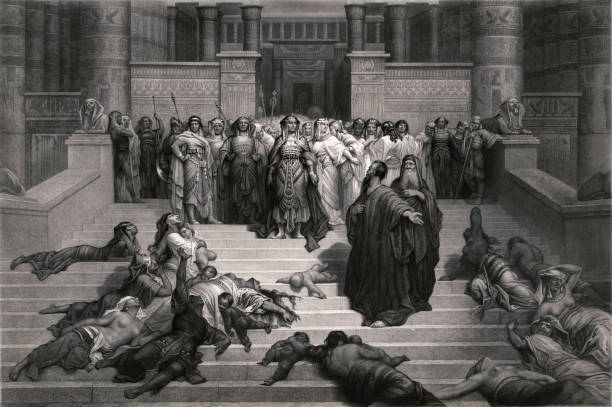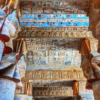Faith and Resilience in the Land of the Pharaohs

The Coptic (Byzantine) Era in Egypt
Although the Roman Empire did not embrace Christianity early on, the Christian religion spread rapidly in Egypt. However, those who converted to Christianity worshipped in secret for fear of Roman emperors’ tyranny. A turning point occurred in the Roman Empire when the mother of the emperor Constantine, the ruler of Byzantium, converted to Christianity. (Since the division of the Roman Empire into Rome and Byzantium, Egypt was under Byzantine rule.) Subsequently, in 323 AD, Emperor Constantine recognized Christianity as the primary religion of the Roman Empire. This allowed Egyptians to practice their religion freely.
Christian Thought
As we’ve previously learned, the library of Alexandria (Mouseion), founded by Ptolemy III, became one of the world’s greatest academic institutions. It produced not only scholars of medicine and engineering but was also a center of philosophy and thought. Famous schools of learning, known as the Schools of Alexandria, flourished there. When Christianity was recognized as the official religion of the Roman Empire, many scholars from Alexandria converted and founded a school of Christian theology. When Emperor Constantine invited scholars to agree on a unified understanding of Christianity, they convened in 325 AD. However, the scholars disagreed, leading to a division of the Church into two: one in Rome, which eventually became the Vatican, and the other in Alexandria. Early Christians in Egypt considered pre-Christian religions, like ancient Egyptian religion, to be pagan. Therefore, they built their churches within ancient Egyptian temples, particularly those of Karnak, Philae, and Hatshepsut’s temple, which later became known as the Deir el-Bahri (means Monastery). Despite this, a notable feature of Christianity is the depiction of the Virgin Mary and Jesus Christ. In Egypt, these figures were often portrayed in a manner similar to Isis and Horus. Even the cross in Egypt resembles the ancient “Egyptian Ankh”, or key of life. This demonstrates the influence of Egyptian culture and art on Christianity.





